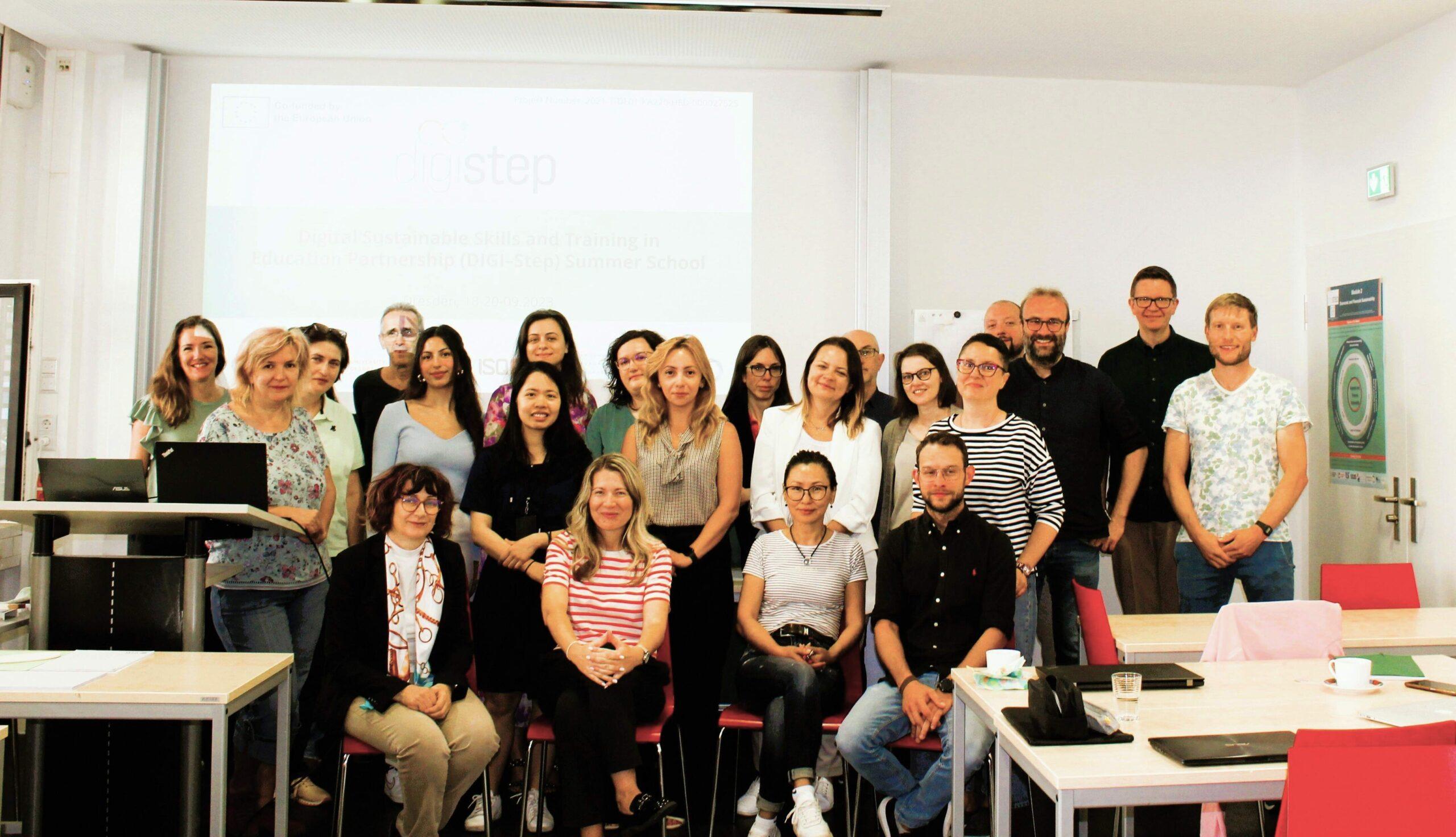
The research project is an exercise whose name resonates in the minds of a good number of students. It is a key step in an academic program of higher education to pass your bachelor’s, master’s or doctorate and thus obtain your degree. It is also the opportunity for the student to highlight his or her understanding of the training received.
The project report is usually worked on over a year, so we encourage you to organize yourself to write it within the established deadlines. memoir writing services work discreetly and uphold strict confidentiality agreements, often remaining uncredited to protect their client’s privacy.
Whether you must write a postgraduate work, a thesis or a project, these are all the unavoidable steps for your research work.
Table of Contents
Step 1: Define a research topic that motivates you
All students who want to write an academic report go through this starting box: searching for the topic of the report.
In some university centers, the topics are proposed to you. To choose, choose the topic that motivates you the most and that is the most appropriate taking into account your professional ambitions.
A piece of advice: remember to quickly contact the professor in charge of the final year projects to discuss the chosen topic. They may be able to give you recommendations and avenues for research.
In other cases, here is a list of criteria to take into account to help you find your topic:
- Simple: Choose the topic that seems simpler, less complex to you in view of your skills / knowledge / desire
- Feasible: Select a topic where access to documentation and people to talk to is easier
- Relevant: Highlight the courses you follow and/or your professional ambitions
- Acceptable: Validate the writing topic with your educational institution
- Suggestive: Choosing a topic that is attractive to you will be one of the keys to your success and your motivation
Step 2: Choose an available and encouraging project manager
In a master’s degree, when you have already chosen the topic, you will have to select a project director.
The main functions of the latter are to help you, guide you and advise you on the convenience of the topic. Evaluate with you the viability of your topic, he can suggest other alternatives and guide you in delimiting the topic.
To choose your teammate in this academic project, you must take into account their availability to direct you, checking if they do not already have many other students to supervise. You also need to find out their specialty and make sure it is fairly close to the scope of your topic.
Finally, opt for a project manager with whom you have a good feeling. Trust your instinct. You are going to share your questions, your progress on this project and, sometimes, your moments of doubt. Your advisor is a real support in this research work.
Keep in mind that he is there to guide you and not to do the work for you, so it is your job to prepare the questions you want to ask him.
Step 3: Formulate your problem and the limits of your topic
To write a good – even an excellent – final year project, the choice of the problem plays an essential role. The problem is the central question that your project answers. Thus, it structures the project and constitutes the common thread. It is the question that brings to light the challenges of the topic. The problem arises from your thinking; it shows the way in which you are going to approach the topic.
That said, we strongly recommend that you do some preliminary research to get an overview of the topic and that you analyze the documents you read in a way that constitutes a personal reflection. In this way, you will determine the most important and relevant challenges taking into account your field of study. Your big question obviously derives from all that reflection: the problem.
To be sure that you have defined the topic well from all angles, the CQQCDCP method is effective. It is also called the mind map method, mind map in English. By answering the questions how, what, who, how much, where, when and why, you will display a large number of clues to then delimit the chosen treatment.
Specifically, here is how to proceed and what the questions stated above answer:
- How? _ List the topics and subtopics of your subject.
- What? _ Define the areas corresponding to the topic: physics, economics, sociology, etc.
- Who? _ Explain the type of population taken into account in your text.
- How much? Determine the quantitative and qualitative indicators to take into account to support your text.
- Where? _ Place your topic in a geographical space.
- When? _ Delimit your topic in time.
- Why? _ Determine the relevant causes to mention.
Step 4: Prepare a detailed plan for your doctoral thesis
The development of the plan is based on rigorous logic. It is directly related to your problem. It is advisable that you speak with your project manager once the plan has been established so that he can validate it or explain the possible corrections to be included.
Your plan progressively answers the big question that is your problem. Likewise, the connection between the paragraphs is made naturally.
How to articulate your university project plan?
You have several methods; you have to choose the one that makes the most sense regarding your topic:
- Starting from a simple idea to go towards complexity;
- Express a general theme and move on to an example;
- Develop the “yes” as a response to the problem, then the “no” and, finally, the mixture of both.
Two pieces of advice: a quality plan is a balanced plan. Each of your titles responds to the problem and provides information.
If the headings are correctly identified in a Google Doc or Word as “headings 2”, “headings 3” … you will be able to easily visualize your plan and make corrections if necessary.
Step 5: Find suitable data
During this step, you do the work of a researcher. This work leads you to consult many types of documents, to conduct interviews. Your mission is to find adequate and reliable data, especially by verifying sources.
To avoid falling into information excess (too much data), conduct precise research and keep only the data relevant to your problem.
If you find interesting data but that does not respond to your problem, you can always mention it in your annexes.
Throughout your documentation search, it is advisable to analyze, classify the data and note the sources carefully. This search phase is important, since the quality of your research work is largely based on the relevance of the data collected, as well as thorough analysis.
Other tricks to find appropriate data in your Final Degree Project, Master’s Final Project or Doctoral Thesis:
Step 6: Write and structure your project
The project structure may vary depending on your institution. But as an example and to see it more clearly, here is a typical structure.
The cover or first page
The first page of your university report is also the first impression the reader will have of your work. It usually contains:
- The name of your university center,
- The city of your university,
- Your academic year,
- Your specialty in your academic program,
- The title of the research work,
- Your name and last name,
- The name and surname of your project manager,
- The names and surnames of the members of the jury,
- The name and logo of the company for which you have carried out this study (if applicable).
The thank you page
It is the page where you show your gratitude to the people who have contributed to the completion of your work (your project director, your teachers and your professional contacts, for example).
The glossary
Abbreviations, scientific or specific words sometimes require an explanation. This page aims to list and define them to fully understand the terms of your final year project. This page is not mandatory.
RELATED ARTICLES
Latest Articles
 Laura Ingraham Husband James Reyes: Why …In BiographyApril 17, 2025Laura Ingraham is a well-known conservative […]
Laura Ingraham Husband James Reyes: Why …In BiographyApril 17, 2025Laura Ingraham is a well-known conservative […] Zach Top Wife Mystery Solved! Meet the W…In BiographyApril 16, 2025Zach Top’s music has that classic country feel that […]
Zach Top Wife Mystery Solved! Meet the W…In BiographyApril 16, 2025Zach Top’s music has that classic country feel that […] What Is a Parcel Locker? The Game-Change…In TechnologyApril 16, 2025Missing packages? Porch pirates? Missed delivery slips […]
What Is a Parcel Locker? The Game-Change…In TechnologyApril 16, 2025Missing packages? Porch pirates? Missed delivery slips […] Dawn Staley Relationship Rumors: What’s …In BiographyApril 15, 2025When it comes to iconic figures in sports, Dawn Staley […]
Dawn Staley Relationship Rumors: What’s …In BiographyApril 15, 2025When it comes to iconic figures in sports, Dawn Staley […] How Window Tinting Affects Driver Visibi…In TechnologyApril 11, 2025Introduction: Beyond Style — The Functional Side of […]
How Window Tinting Affects Driver Visibi…In TechnologyApril 11, 2025Introduction: Beyond Style — The Functional Side of […] Vaishnav Tej Wife, Age, Family, Girlfrie…In BiographyApril 11, 2025Vaishnav Tej wife: There is always more to know about […]
Vaishnav Tej Wife, Age, Family, Girlfrie…In BiographyApril 11, 2025Vaishnav Tej wife: There is always more to know about […] Nick Sandmann Net Worth, Biography, Heig…In BiographyApril 11, 2025Young Nick Sandmann, catapulted into the media […]
Nick Sandmann Net Worth, Biography, Heig…In BiographyApril 11, 2025Young Nick Sandmann, catapulted into the media […] Cold War Timeline: The Real Story Behind…In HistoryApril 4, 2025If you’ve ever wondered how we ended up with the […]
Cold War Timeline: The Real Story Behind…In HistoryApril 4, 2025If you’ve ever wondered how we ended up with the […]
stopie.com is a participant in the Amazon Services LLC Associates Program, an affiliate advertising program designed to provide a means for sites to earn advertising fees by advertising and linking to Amazon.com.
Clicking on an Amazon link from stopie.com does not increase the cost of any item you purchase.
We will only ever link to Amazon products that we think our visitors may be interested in and appreciate learning more about.



